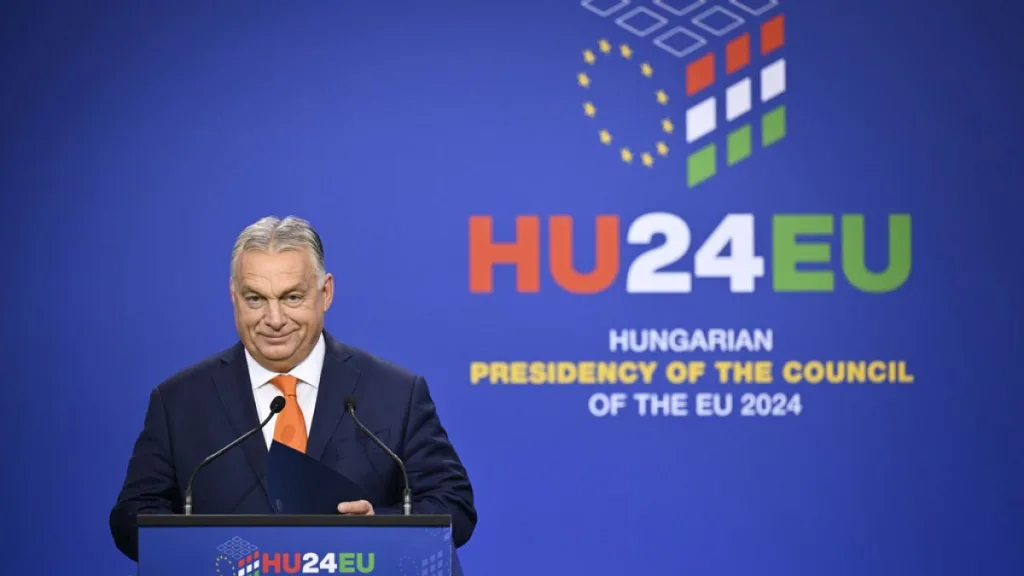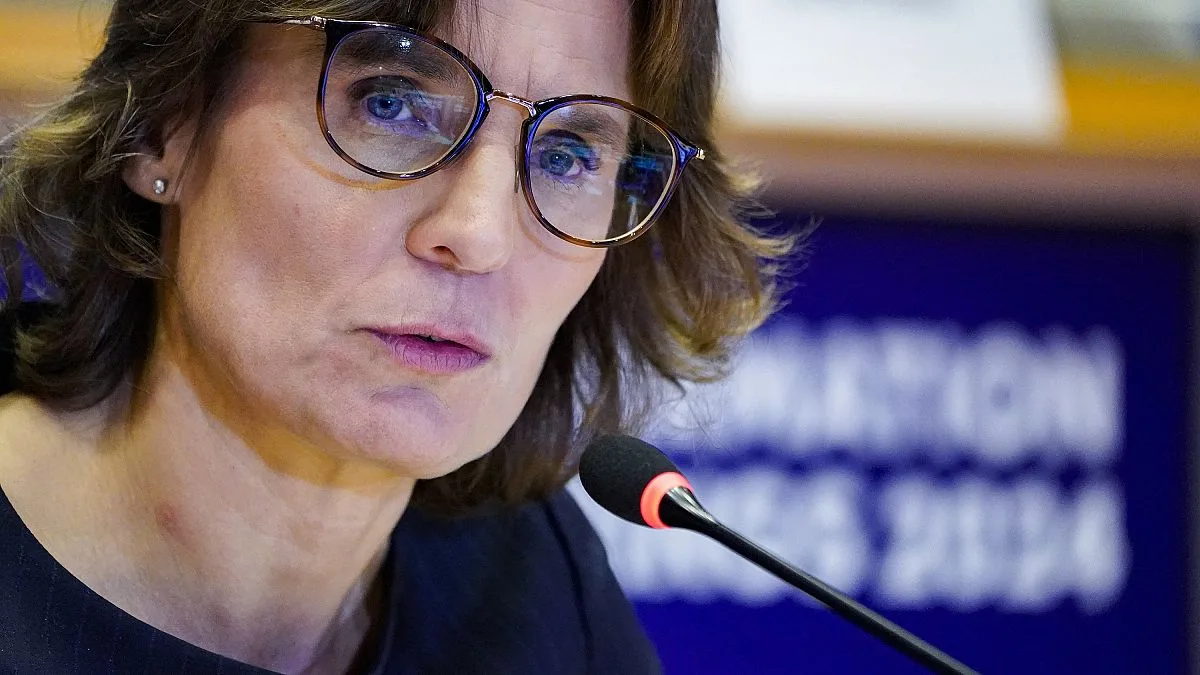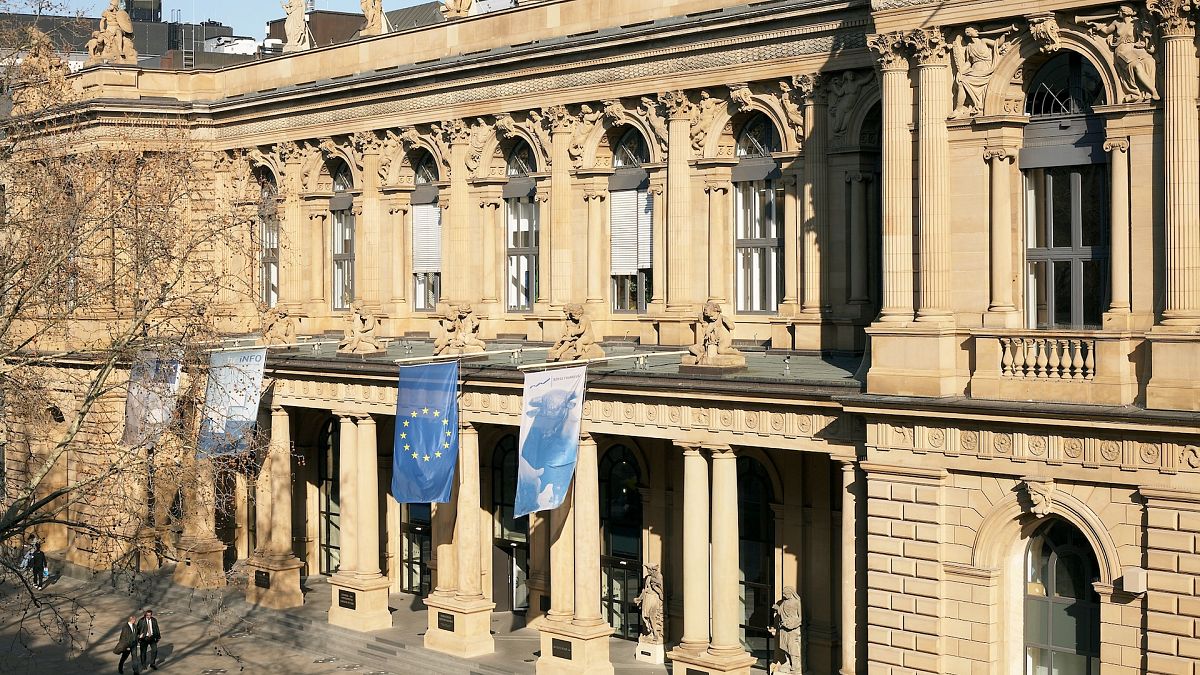Poland is preparing to assume the presidency of the European Union, marking a significant transition as Hungary’s controversial term draws to a close.
The presidency of the Council of the European Union rotates among the 27 member states every six months, with the leading country responsible for guiding council operations and representing all member states in negotiations with EU institutions.
Hungary’s presidency lasted from July 1st until the end of the year, and as the new year dawns, Poland is set to take over leadership responsibilities.
Hungary’s term began under a cloud of controversy, notably with the launch of a campaign titled “Make Europe Great Again,” a nod to the well-known slogan of former US President Donald Trump.
The Hungarian Prime Minister, Viktor Orbán, faced heavy criticism right from the outset. His presidency commenced with a widely condemned visit to Moscow, where he met with Russian President Vladimir Putin in what he described as a “peace mission.” This meeting took place amidst heightened tensions in Europe following Russia’s invasion of Ukraine in February 2022.
Orbán was the first EU leader to engage with Putin post-invasion, further exacerbating tensions within the EU community. This controversial meeting, supported by Orbán’s second visit to Moscow two years later, was met with extensive backlash, culminating in a strong condemnation from the European Parliament.
The European Parliament characterized Orbán’s meeting with Putin as a “blatant violation of the EU’s treaties and common foreign policy,” calling for repercussions against the Hungarian leader.
Orbán also faced backlash for engaging with Chinese President Xi Jinping during Hungary’s tenure as EU President. Many nations within the EU opted to distance themselves from Hungary, boycotting meetings held in Budapest, asserting that Orbán’s policies diverged from the collective interests and goals of the bloc.
His frequent criticisms of the EU only amplified his already fraught image. In various media appearances and speeches, Orbán has publicly denounced EU support for Ukraine, suggesting that concessions and diplomacy are the path to peace, rather than military engagement.
“Those who believe in what we’re doing as the EU can continue to support the Ukrainians. But we, in Hungary, do not align with that,” Orbán stated, highlighting a growing schism between Hungary and other EU member states.
Furthermore, Orbán has previously accused the EU of establishing a ‘puppet government’ in Warsaw, asserting that it prioritized Brussels’ interests over those of the Polish populace.
His increasingly confrontational stance towards the EU has been unmistakable. The bloc withheld billions of euros in financial aid due to Hungary’s alleged breaches of democratic and rule-of-law standards, leading to rising tensions.
Meanwhile, Poland’s previous government, with its nationalist-conservative agenda, had also experienced conflicts with the EU over issues of democratic governance.
Orbán has taken a combative position since Hungary joined the EU in 2004, rallying Eurosceptic parties to strengthen far-right influence within the EU legislature.
EU leaders have voiced their concerns over Orbán’s drift towards autocratic governance, drawing parallels with regimes such as Russia and China.
As Poland steps into the presidency, led by Prime Minister Donald Tusk’s government, there is hope that this leadership will restore unity within the bloc and rekindle pro-European sentiments amongst member nations.
Photo credit & article inspired by: Euronews



